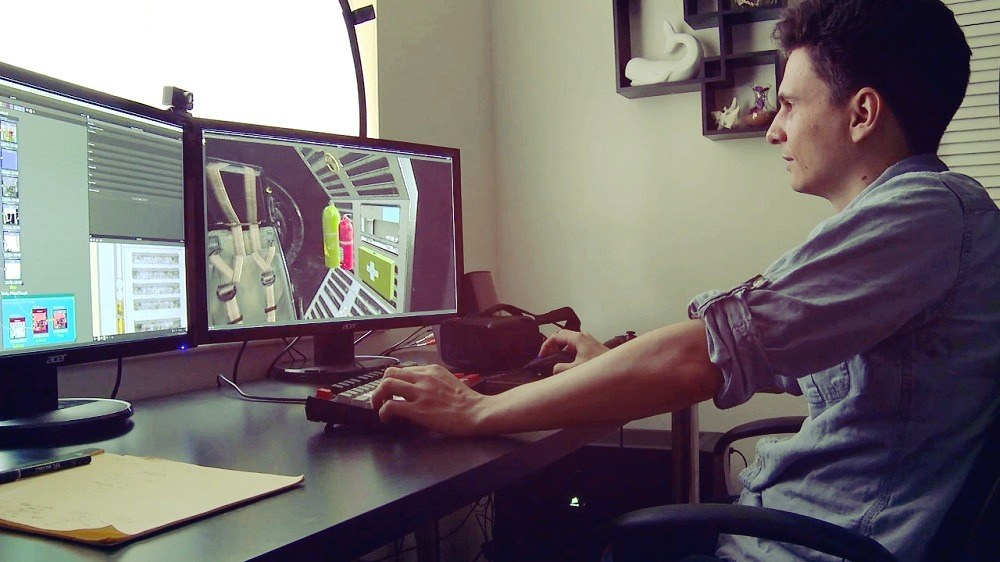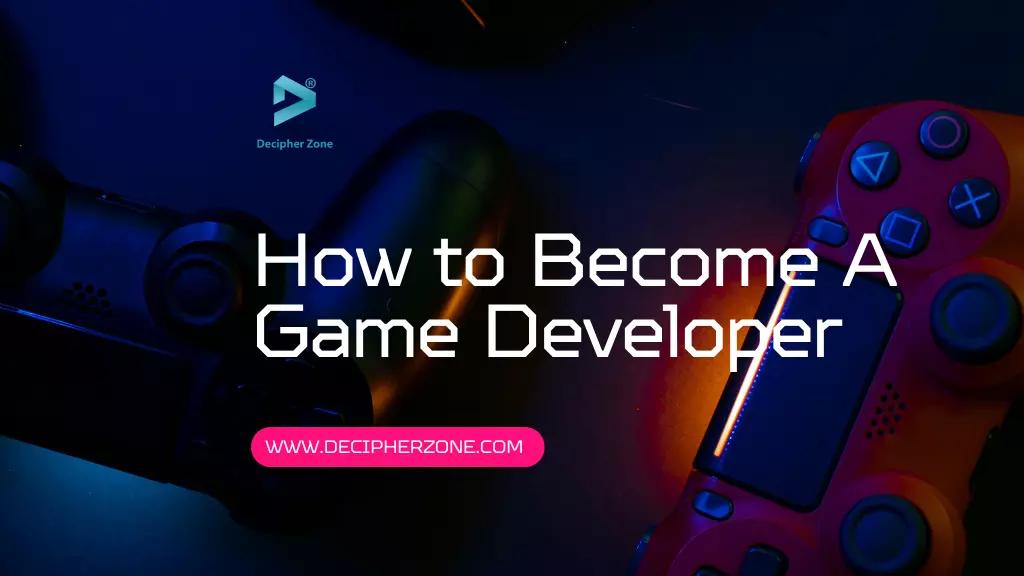Embarking on a journey as a game developer is rewarding yet challenging. If you harbor dreams of creating captivating video games, it's key to understand the basics first. This requires technical skills combined with creativity and imagination.
From learning programming languages to acquiring design principles, the process bears unique complexities. However, these can pave your way toward this exciting career path once mastered. Let's delve into what it takes to become an imaginative game developer in today’s age.
Essential Skills Required for Game Development
Embarking on a journey as a game developer is rewarding yet challenging. If you harbor dreams of creating captivating video games, it's key to understand the basics first. This requires technical skills combined with creativity and imagination. From learning programming languages to acquiring design principles, the process bears unique complexities.

So whether you want to develop slots games or multiplayer action games, here are the essential skills required for game development:
-
Programming Knowledge. A strong foundation in C++, Python, and Java is indispensable. These languages are widely used in the industry.
-
Graphics Design. A sense of aesthetics helps in crafting stunning visual elements.
-
Physics and Mathematics. Essential for creating realistic game mechanics and movements.
-
Storytelling and Scripting. An engaging storyline can be a game's unique selling point.
-
Problem Solving. Game development is filled with challenges that demand creative solutions.
-
Teamwork. Collaboration with designers, artists, and other developers is frequent and vital.
Read: What is Web3 Gaming
The journey of becoming a game developer, while demanding, promises a blend of artistic expression and technical innovation. Equip yourself with the aforementioned skills, and you’ll be well on your way to shaping captivating gaming experiences.
Educational path: Degrees and Courses beneficial for becoming a game developer
A structured educational journey can lay a robust foundation for aspirants aiming to delve into game development. Starting with a Bachelor's degree in Computer Science or Game Design, it offers core programming skills and an understanding of game mechanics.
Read: Beginner Game Development
Many universities now offer specialized Bachelor's and Master's degrees in Game Development. These courses encompass both technical coding aspects and design principles. Consider courses in 3D Animation, Graphic Design, or Sound Engineering for a more targeted approach. They polish specific skills essential in game development.
Read: Blockchain in Gaming
Short-term certifications in specific programming languages, such as C++ or Unity, can also be advantageous. Additionally, courses on player psychology can give insights into user behaviors.
Read: How to get into Game Development
Lastly, workshops at gaming studios provide real-world experience. Remember, while formal education helps, hands-on experience and continuous learning are equally invaluable in this ever-evolving field.
Practical Experience: Internships, Portfolio Building, Participating in Gaming Jams
Theory must meet practice before truly thriving in the game development realm. Whilst academic qualifications give a solid foundation, the industry's nuances are best learned hands-on. Here's how one can gain indispensable practical experience:
-
Internships. Interning at gaming studios or tech firms provides a hands-on introduction to the industry. It's an opportunity to grasp workflows and team dynamics and face real-world challenges. Additionally, networking during internships can be a gateway to future job prospects.
-
Portfolio Building. A robust portfolio showcases your versatility and proficiency. Begin with small game projects or modify existing ones. Highlight special mechanics, designs, or stories. As your expertise broadens, add a mix of game types and complexities to your portfolio.
-
Participating in Game Jams. Events like the Global Game Jam or Ludum Dare challenge developers to craft games swiftly. They enhance creativity, problem-solving, and teamwork. They're also an excellent platform to gain feedback and catch the attention of industry insiders.

Marrying formal education with these practical steps not only hones skills but also offers a comprehensive understanding of the gaming arena.
Read: Tips To Build a High-Quality App or Game
Getting Started Professionally: Finding Job Opportunities
Leaping a budding enthusiast to a professional game developer requires strategic planning and initiative. Here’s how to navigate the early stages of a professional journey:
-
Networking. Attend industry conferences like the Game Developers Conference (GDC) or E3. Such events can be goldmines for job opportunities, connecting directly with industry professionals.
-
Job Boards and Websites. Platforms like Gamasutra Jobs or Behance offer listings specifically for game developers. Regularly checking and applying can increase the chances of landing a role.
-
Gaming Studios. Apply directly to renowned studios like Ubisoft, EA, or indie developers. Tailor your application to match the studio’s ethos and game genre.
-
Freelancing. Websites like Upwork or Freelancer have game development gigs. While they might be project-based, they provide invaluable experience and can lead to longer-term contracts.

Starting professionally is a mix of proactivity, resilience, and adaptability. With passion and persistence, the world of game development can be yours to conquer.
Read: Metaverse Use Cases and Benefits
Conclusion
The journey to becoming a game developer is intricate, combining both art and science. Each step, from solidifying academic foundations to gaining hands-on experience and networking in the industry, molds one's skills and perspective. Adaptability and lifelong learning remain paramount as the gaming realm continues to evolve.

